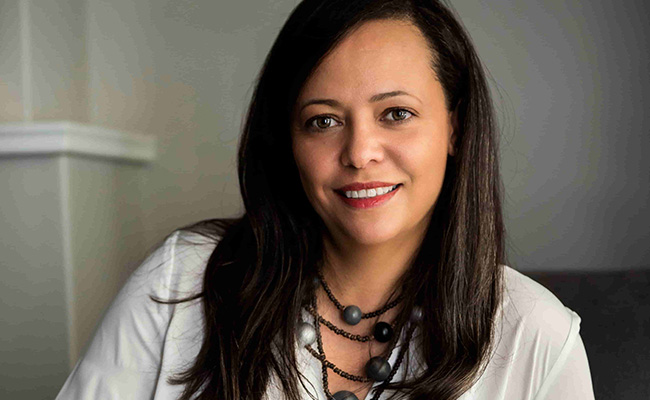When I was younger, I was convinced that building wealth required two things: a lot of financial knowledge or capital to start with, ideally both. Sadly, I was short on both. But as the years have passed, I realised that wealth doesn’t start with a lucky inheritance or a PhD in finance, it begins with habits – the small, repeatable actions that quietly compound into lasting prosperity.
The most successful investors I know aren’t necessarily the smartest and weren’t the wealthiest to start; they were simply the most consistent. They’ve mastered the art of turning basic financial principles into behaviours, and it’s these habits, not their market predictions or complex strategies, that have built their wealth over time.
Wealth is not a single, astonishing achievement but the cumulative result of thousands of small, daily decisions.
Among the many personal finance tips floating around, three habits stand out as the most powerful: managing your spending, paying yourself first, and keeping your investments simple. They sound deceptively straightforward, but the challenge lies in weaving them into daily life until they become second nature.
1. Manage your spending – effortlessly
Every wealth plan rests on the foundation of spending less than you earn. This isn’t about living like a monk or cutting out every small pleasure. It’s about awareness and intentionality – knowing how you’re spending the money you earn.
Too often, people treat budgeting and expense tracking like an intensive diet, which invariably lasts for a few weeks at most. The key is to make budgeting and expense tracking as easy as possible. Thankfully, there are a host of apps out there that can link your bank and credit card accounts to categorise your spending automatically.
The habit isn’t about perfect control; it’s about consistent awareness. When you know where your money flows, you can redirect it towards what matters most – whether that’s savings, debt repayment or experiences you truly value.
2. Pay yourself first
The second habit flips the usual order of things. Instead of saving what’s left after expenses, you save first and spend what’s left after that. The easiest way is to set up automatic transfers into an investment or savings account the moment your salary arrives. So, before the rent, before entertainment, before anything else – you pay your future self.
The beauty of automation is that it removes emotion and procrastination from the equation. When investing happens automatically, you don’t have to choose between buying that new gadget and investing for the future; the choice has already been made. You’ve removed the need for constant willpower.
3. Keep it simple
The investment world is filled with complexity that serves the industry more than the investor. The antidote is to embrace simplicity, which protects you from one of the biggest threats to long-term wealth: costs.
The habit of simplicity means consistently choosing low-cost, broadly diversified index-tracking exchange-traded funds (ETFs) over the latest hot stock or complex investment product. They give you broad exposure to the entire market at a fraction of the cost of active funds.
Trying to time the market or dabbling in speculative assets can be thrilling, but history shows that most investors, even professional asset managers, underperform when trying to outsmart the market.
This isn’t about being boring – it’s about being effective. Simple strategies are easier to understand and maintain, cheaper to execute and have historically been more successful than their more complicated alternatives.
The challenge: going from knowledge to action
These habits sound embarrassingly simple on paper, so why do so many people struggle to implement them? Because knowing what to do and actually doing it consistently are very different challenges. We all know that exercising every day is beneficial for us, yet very few of us actually do it. This is where James Clear’s Atomic Habits is invaluable.
Clear argues that lasting change doesn’t come from willpower alone; it comes from building systems and seeing yourself in a new way that creates an identity around your desired behaviours. You don’t just “invest”, you become an “investor”. So instead of saying “I want to be wealthy”, say: “I am an investor.”
This subtle shift changes how you approach financial decisions. Investors review their spending regularly. Investors automate their contributions. Investors choose simple, effective strategies over flashy alternatives.
To build an investor identity, you should:
- Start small. Don’t aim to overhaul your entire financial life in a week; start with one small action and build from there.
- Make it easy. Remove as much friction as possible. The moment something becomes a chore, it stops happening.
- Do it often. Consistency matters more than size. Clear suggests “habit stacking” by attaching a new habit to an existing routine so it piggybacks on something you already do.
Making money habits stick
Now let’s apply this methodology to our three wealth-building habits:
- Manage your spending: Start by tracking just one category of expenses, such as dining out. You might start by habit-stacking a weekly expense review with your Sunday morning coffee routine. The key is making the review process effortless – choose an app that automatically categorises expenses so you’re not manually sorting through transactions.
- Pay yourself first: Start absurdly small – maybe R100 or 1% of your take-home salary on the day you get paid. The amount isn’t important; what’s important is the automation. Set it up once, let it run for a month, then gradually increase. Make it easy by choosing a platform with no minimum balances and automatic investing features. The habit becomes so seamless that you forget it’s happening, which is precisely the point.
- Keep it simple: Choose one or two diversified ETFs, instead of researching dozens of funds. Then make it easy by setting up automatic investing into the chosen ETFs for each deposit you make.
Building your investor identity
Each time you complete these small actions, you’re casting a vote for your identity as an investor. You’re not waiting until you have more money or more knowledge – you’re proving to yourself right now that you’re the type of person who manages money responsibly.
Ultimately, building wealth is less about mastering complex financial theories and more about mastering yourself. The beauty of this realisation is that it means anyone, regardless of their background or current financial situation, can and should start today.
Your journey to financial security doesn’t begin with a perfect investment plan or a big bonus, but with the small, deliberate habits that you choose to build and repeat every day.
Thomas Brennan is a co-founder of Franc, a South African fintech that helps people invest simply and affordably.
Top image: Rawpixel/Currency collage.
Sign up to Currency’s weekly newsletters to receive your own bulletin of weekday news and weekend treats. Register here.














